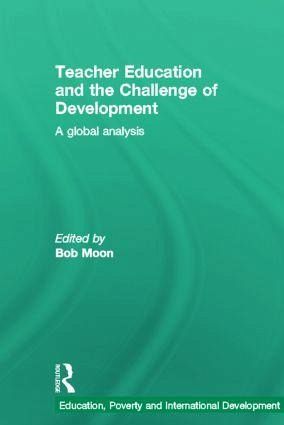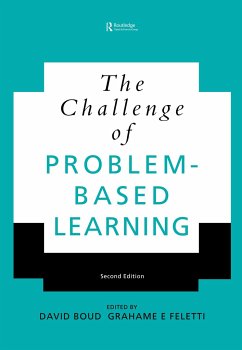
Teacher Education and the Challenge of Development
A Global Analysis
Herausgeber: Moon, Bob
Versandkostenfrei!
Versandfertig in 1-2 Wochen
204,99 €
inkl. MwSt.
Weitere Ausgaben:

PAYBACK Punkte
102 °P sammeln!
In developing countries across the world, qualified teachers are a rarity, with thousands of untrained adults taking over the role and millions of children having no access to schooling at all. The supply of high-quality teachers is falling behind: poor status, low salaries and inadequate working conditions characterise perceptions of teachers in numerous countries, deterring many from entering the profession, and there are strong critiques of the one dimensional, didactic approach to pedagogic practice. Despite this, millions of teachers are dedicated to educating a newly enfranchised generation of learners. Teacher Education and the Challenge of Development is co-written by experts working across a wide range of developing country situations. It provides a unique overview of the crisis surrounding the provision of high-quality teachers in the developing world, and how these teachers are crucial to the alleviation of poverty. The book explores existing policy structures and identifies the global pressures on teaching, which are particularly acute in developing economies. In summarising the key policy and research issues and analysing innovative approaches to teacher supply, retention and education, this book: * establishes an overview and conceptual analysis of the challenge to extend and improve the teaching force in developing contexts; * sets out and analyses the quantitative and qualitative evidence around teacher contexts and conditions; * provides a series of national studies that analyse the context of teachers and the policies being pursued to improve the number and quality of teachers; * looks at a range of significant issues that could contribute to the reformulation and reform of teacher policies; * provides an overarching analysis of the nature and challenges of teaching and the possible interventions or solutions, in a form accessible to policy and research communities. This book will be of interest to educationalists and researchers in education, teachers, policy makers and students of development courses at both undergraduate and postgraduate levels.













